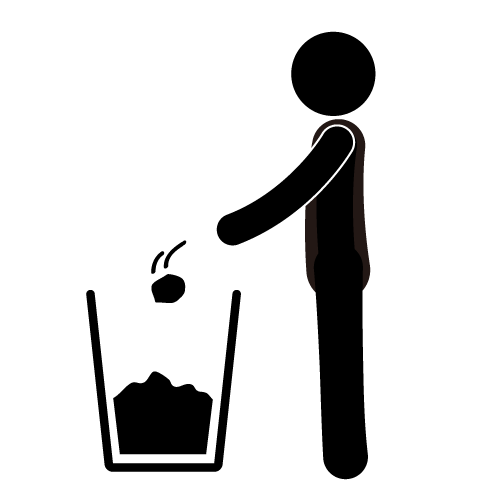It is hard to live in the new reality of shopping for everything online and having our meals delivered to the door and not have that influence other aspects of our lives. For a long time clothes were in style and out (though most of you who have seen me know that is not something I pay much attention to). Furniture and decorator items went in style and out of style -- making sure that yard sales, flea markets and thrift stores have plenty to sell. But what are the ongoing lessons we have learned from all of this throwaway culture?
Can we make a comparison between the way we shop and live to the fast pace of social change among us? I believe that they are comparable and one has influenced the other. As quickly as we spend our money to have what is new in technology and style, so quickly do we cast off what we once used and thought wonderful. Does this not also influence the ease at which we embrace new definitions of marriage and family? Gender and sexuality? Life from its conception to its natural end? I fear that the pandemic has reinforced the idea that not only are our things discardable but our values are subject to constant change and our doctrines adjusted to fit the times -- and these are the part of the new normal along with social distancing and masks. This is definitely an issue for the churches to face and to consider.
Certainly the throwaway culture has influenced worship. From the liturgies created for a moment in time to the hymns written for the day, we have indoctrinated ourselves into the idea that change is not only inevitable but we should embrace it and jump on the train before it is too late. The fear that our worship or our doctrine is out of step with the people or may be deemed irrelevant is a strong temptation to cast aside what has survived the test of truth and time in favor of something new. What we fail to see, however, is that our press for that which is new comes at a cost. How many folks have lost confidence in the Church precisely because the Church offers no anchor but is simply adrift on the sea of culture and change?
Although I hesitate to mention this, I fear that the practices we have learned from the pandemic may also contribute to the incorporation of the throwaway culture into the life of the Church. For example, learning that we can purchase, use, and then discard the bread and wine that come in neat little plastic containers (even little plastic chalices) will not easily be forgotten as the threat of COVID disappears and we return to the normal now made new. But what of the remains of Christ's flesh and blood that are cast into the garbage along with their containers? What does that say of our faith?
When it comes to life itself, our throwaway culture has led us to judge no life as sacred unless we decide it is worthwhile. The child in the womb is but a choice until birth (and some say that immediately after birth the mother should still have a choice whether the baby lives or dies). The aged and infirm in the nursing home are a choice and, if our culture deems their life not worth living, a growing number of folks think somebody should have the ability to end that life. Those who deem their lives too full of suffering (however you might define it) are also seen by a growing number of people as having a right to end their lives without pain at the moment they choose -- and with the help of those whose calling is to do no harm.
So what will happen? I have no crystal ball. But I know the consequences of judging the things of God as temporary or tomorrow's trash will not be pretty. We seem to be adept at gutting our faith of the very things that serve as a moat around the eternal -- reverence, awe, and respect -- and disdaining the bridges to the eternal God has provided -- His Word and Sacraments.

1 comment:
"One of the great casualties of the pandemic have been the trees. We are drowning in the paper and cardboard packaging of all the meals to go and Amazon deliveries -- literally. I am ashamed of the mountain of trash and recyclable items that flow from my meager household of two people."
As you noted, the paper and cardboard packaging and other trash (including most plastics) are mostly recyclable. Thus there should be no "drowning" problem, especially since Clarksville does have residential recycling pickup.
From the latest Paper and Paperboard Recycling data, the recycling rate is in around 66% in 2019 (China affects the rate with restrictions on recycled paper imports; so blame the ChiComs).
It's in third world countries where trees are more in danger from being burned to create farming and cattle grazing areas.
Post a Comment